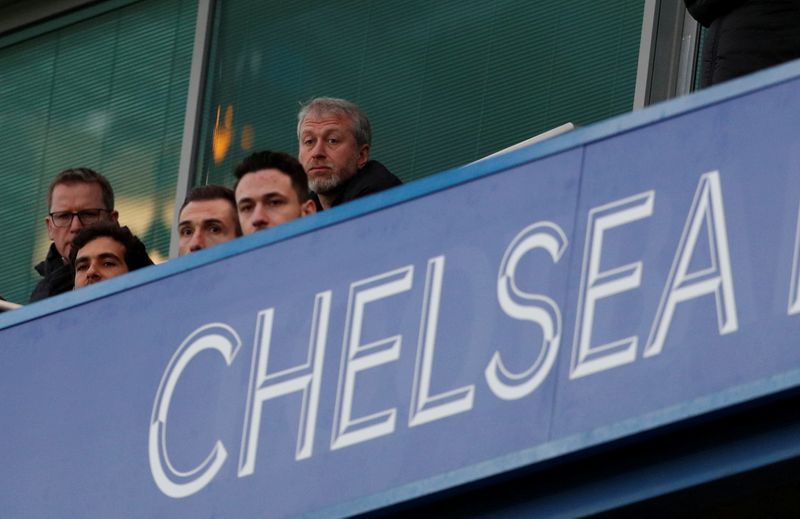LONDON (Reuters) – Claims in a book about President Vladimir Putin that billionaire Roman Abramovich bought Chelsea Football Club on the orders of the Kremlin to spread Russian influence in Britain are defamatory, a British judge ruled on Wednesday.
In the 2020 book, British journalist Catherine Belton chronicles Putin’s rise to power and how many of his associates from the former Soviet spy services rose to positions of wealth and influence after he won the top Kremlin job in 1999.
A lawyer for Abramovich had argued in court that passages in the book “Putin’s People: How the KGB Took Back Russia and then Took on the West”, published by HarperCollins, were clearly defamatory. Abramovich is suing both HarperCollins and Belton.
“The impression that the reader has is that the Kremlin used the purchase of Chelsea Football Club to gain acceptance and influence for Russia in the UK,” Judge Amanda Tipples said in a judgement.
“The underhand way in which this was achieved was to use the claimant, someone who was seen as the acceptable face of Russian business, as the front for it. That was my impression when I read the book,” the judge said. “The meanings I have identified are all defamatory of the claimant at common law.”
The judge was deciding what a reasonable and ordinary reader would understand was the meaning of certain disputed passages in the book. The passages will form the basis of a defamation trial where the author and publisher will have to defend their use.
The judge said the court was only deciding on the meaning of the passages – not whether or not the allegations made in the book were true or not. The defendants have not yet been required to file a defence.
The judge also ruled that an ordinary reader would understand from the book that Abramovich had been sent to the United States by Putin to influence the family of former U.S President Donald Trump on behalf of Russia.
“The ordinary reasonable reader will understand that the claimant was sent to New York on the direction of President Putin to influence the family of Donald Trump on behalf of Russia,” the judge said.
Trump’s campaign did not respond to a request for comment.
‘PUTIN’S PEOPLE’
“We welcome today’s judgment which rules that the book ‘Putin’s People’ indeed makes several defamatory allegations about Mr Abramovich, including false allegations about the nature of the purchase of Chelsea Football Club,” a spokesperson for Abramovich said.
“Today’s judgment further underscores the need for the false and defamatory claims about Mr. Abramovich to be corrected as soon as possible,” the spokesperson said.
HarperCollins said it was considering the judgement.
“HarperCollins is carefully considering the judgement on the meaning hearing handed down this morning by Mrs Justice Tipples regarding the book Putin’s People by Catherine Belton, an acclaimed work of considerable public interest,” it said.
“We are pleased that the judge has found three of the four passages complained of by the Russian state-owned oil giant Rosneft do not bear a meaning defamatory of the company,” HarperCollins said.
The judge ruled that the book did not libel Rosneft by describing its battle with YUKOS, another oil firm, because the meaning of the book was that Igor Sechin, one of Putin’s top advisers and leader of a Kremlin clan of former spies known as the “siloviki”, rather than Rosneft, was behind the attack on YUKOS.
Rosneft did not respond to requests for comment. Sechin, who is now head of Rosneft, could not be reached for comment.
The judge did rule that the meaning of a claim in the book that Rosneft had made an overpayment of $300 million to acquire oil company Severnaya Neft in 2003 was defamatory.
“The meaning I have identified is defamatory of the claimant at common law,” the judge said as she understood the book to mean that the overpayment of $300 million would be paid to Putin or his KGB associates.
Belton, a former Financial Times Moscow correspondent and now a Reuters special correspondent, declined to comment.
(Reporting by Guy Faulconbridge; Editing by Giles Elgood)


























